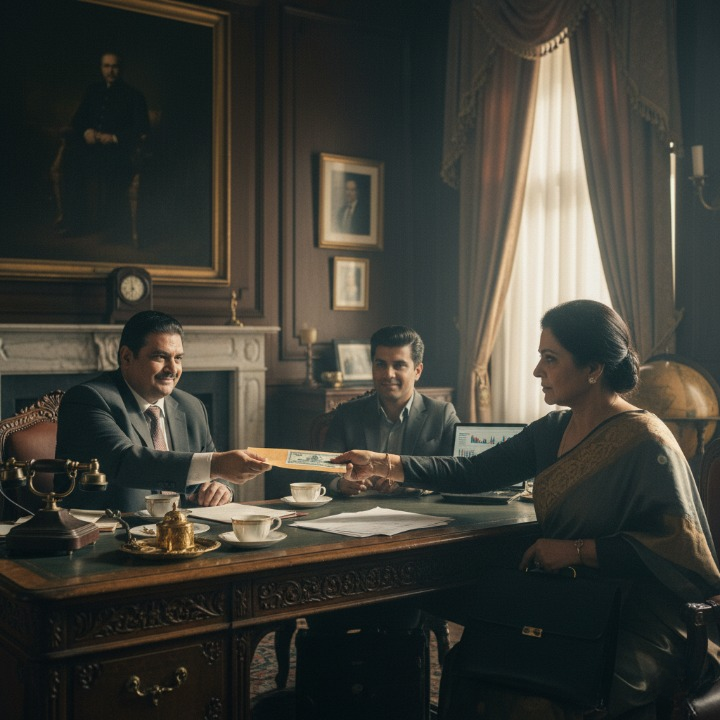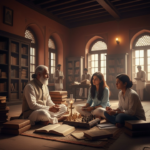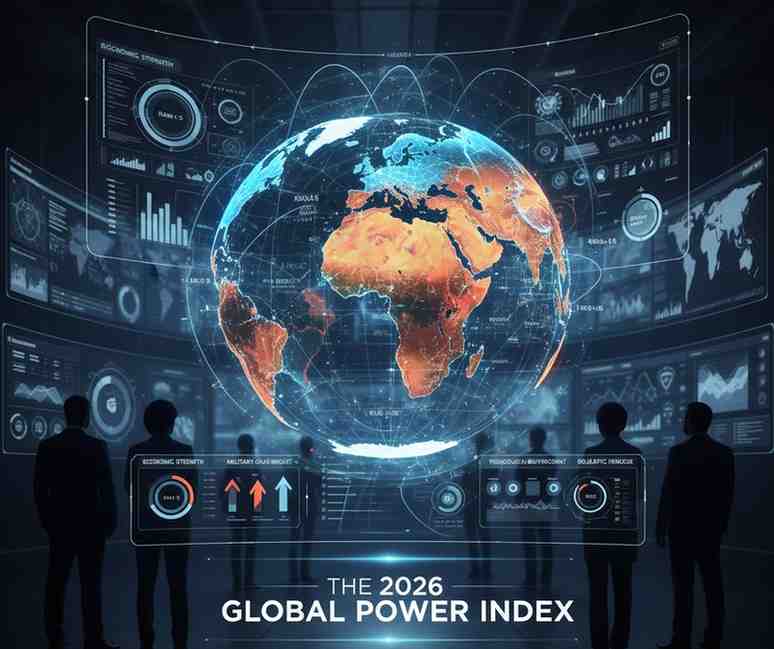
The Illusion of Power: Are Our Politicians Misusing Their Roles?
New Delhi, 2025 — In a democratic system, the relationship between politicians and their roles is grounded in service, responsibility, and the greater good. However, recent trends in Indian politics suggest that the line between power and misuse of power has often become blurred. As politicians amass influence, the question arises: Are our politicians misusing their roles for personal gain rather than fulfilling their democratic duties? With a significant rise in political power centralization and a weak opposition, the dangers of unchecked political authority have become even more apparent.
The Illusion of Power: A Growing Concern
- Consolidation of Power
- The centralization of power within political parties and a handful of influential leaders has raised concerns about the effective functioning of democratic checks and balances. In India, the dominance of national parties and the broad influence of regional heavyweights often leads to a monopolization of decision-making. With parties focusing on retaining power rather than fostering healthy democratic competition, the true essence of governance becomes distorted.
- Weak Opposition and Its Impact
- One of the most glaring issues contributing to the illusion of power is the weak opposition. The opposition’s role is fundamental in holding the government accountable, questioning policies, and offering constructive alternatives. However, in recent years, the opposition in India has been fragmented and often sidelined, leading to a lack of rigorous political debate and checks on the ruling government. The absence of a strong, cohesive opposition has allowed the ruling party to push policies without significant scrutiny, further reinforcing the illusion of absolute power.
- Polarization and Partisan Politics
- The weakening of opposition forces has led to a polarized political environment, where critical debate and discourse are replaced by echo chambers. Political leaders often prioritize party loyalty over public welfare, undermining the ability of citizens to hold their leaders accountable. The resulting political gridlock and partisan gridlock hinder productive dialogue, limiting the scope for reforms and leading to the consolidation of power within a few hands.
Misuse of Political Roles: When Power Becomes Personal Gain
- Manipulation of Institutions
- One of the primary ways politicians misuse their roles is through the manipulation of democratic institutions. Whether it’s the judiciary, media, or Election Commission, centralizing power can lead to the co-optation of these institutions, making them tools of political advantage rather than impartial enforcers of the rule of law. Recent controversies, such as allegations of biased media coverage and judicial appointments that cater to political interests, underscore the dangers of this trend.
- The Rise of Authoritarian Tendencies
- In the absence of a strong opposition, authoritarian tendencies tend to flourish. The unchecked dominance of one political party can lead to the erosion of civil liberties and democratic freedoms. Censorship, crackdowns on dissent, and the suppression of protests have been observed in various instances, signaling a tilt toward more autocratic governance. The 2019-2024 anti-protest measures, where dissenting voices were muted through legal and extrajudicial means, illustrated the dangers of excessive political power.
- Corruption and Unaccountability
- The abuse of political power often leads to corruption, as leaders who believe they are beyond scrutiny tend to act with impunity. The Central Bureau of Investigation (CBI) and National Investigation Agency (NIA), key institutions tasked with investigating corruption and maintaining law and order, are sometimes seen as political instruments used to target rivals or shield allies, further diminishing the integrity of governance.
The Role of a Strong Opposition: The Missing Counterbalance
- The Importance of an Active Opposition
- A strong opposition is crucial in a functioning democracy. It serves as a check on government power, holding leaders accountable and offering alternative solutions to national problems. A robust opposition prevents the concentration of power and ensures that political leaders remain answerable to the people. Unfortunately, recent trends in Indian politics show a fragmented opposition, with key parties either sidelined or engaged in internal conflicts rather than focusing on offering an effective challenge to the ruling government.
- The Weakening of Opposition Parties
- Opposition parties, particularly those with substantial support, have struggled to maintain unity and coherence in their approach to governance. Fragmentation, lack of clear vision, and internal rivalries have made it difficult for the opposition to pose a significant challenge to the ruling government. This weak opposition has been exacerbated by the rise of strong regional parties that prioritize local issues over national ones, leaving a vacuum in national-level opposition politics.
- Erosion of Democratic Accountability
- With the absence of a strong opposition, democratic accountability weakens. The role of the opposition is not only to question the government but also to propose alternative policies and check the government’s power. The lack of this counterbalance means that government decisions often go unchallenged, leading to an environment where political leaders are less inclined to consider the long-term impact of their actions on society. This erosion of democratic checks and balances threatens the foundations of India’s constitutional democracy.
Rebuilding a Balance: Strengthening Political Accountability
- Electoral and Political Reforms
- To address the challenges posed by the concentration of power and a weak opposition, electoral reforms are needed that promote multi-party competition and ensure more inclusive representation. Strengthening the Right to Information (RTI) and creating independent oversight committees can ensure greater transparency and accountability in the political process.
- Revitalizing the Opposition
- For democracy to thrive, a strong and united opposition must emerge, one that offers viable alternatives and ensures that governance remains focused on the welfare of the people. Political parties need to move beyond internal squabbles and ideological divides to focus on the core issues that affect the nation’s future, such as unemployment, education, and social welfare.
- Citizen Participation and Political Engagement
- The responsibility for ensuring political accountability doesn’t solely lie with the opposition; citizens must also play an active role in demanding transparency, supporting ethical leadership, and fostering a more informed electorate. Platforms like MyGov and other government outreach programs should be leveraged to engage citizens and allow them to hold leaders accountable.
Conclusion: Restoring the Balance of Power
The illusion of power that many politicians create often leads to the misuse of their roles, with unchecked authority and a weak opposition undermining the core principles of democracy. By strengthening democratic institutions, revitalizing the role of the opposition, and ensuring greater citizen participation, India can restore the balance of power and create a political system that truly serves the interests of the people. The future of Indian democracy depends on leaders who prioritize the collective good over personal gain, while holding themselves accountable to the citizens they serve.



